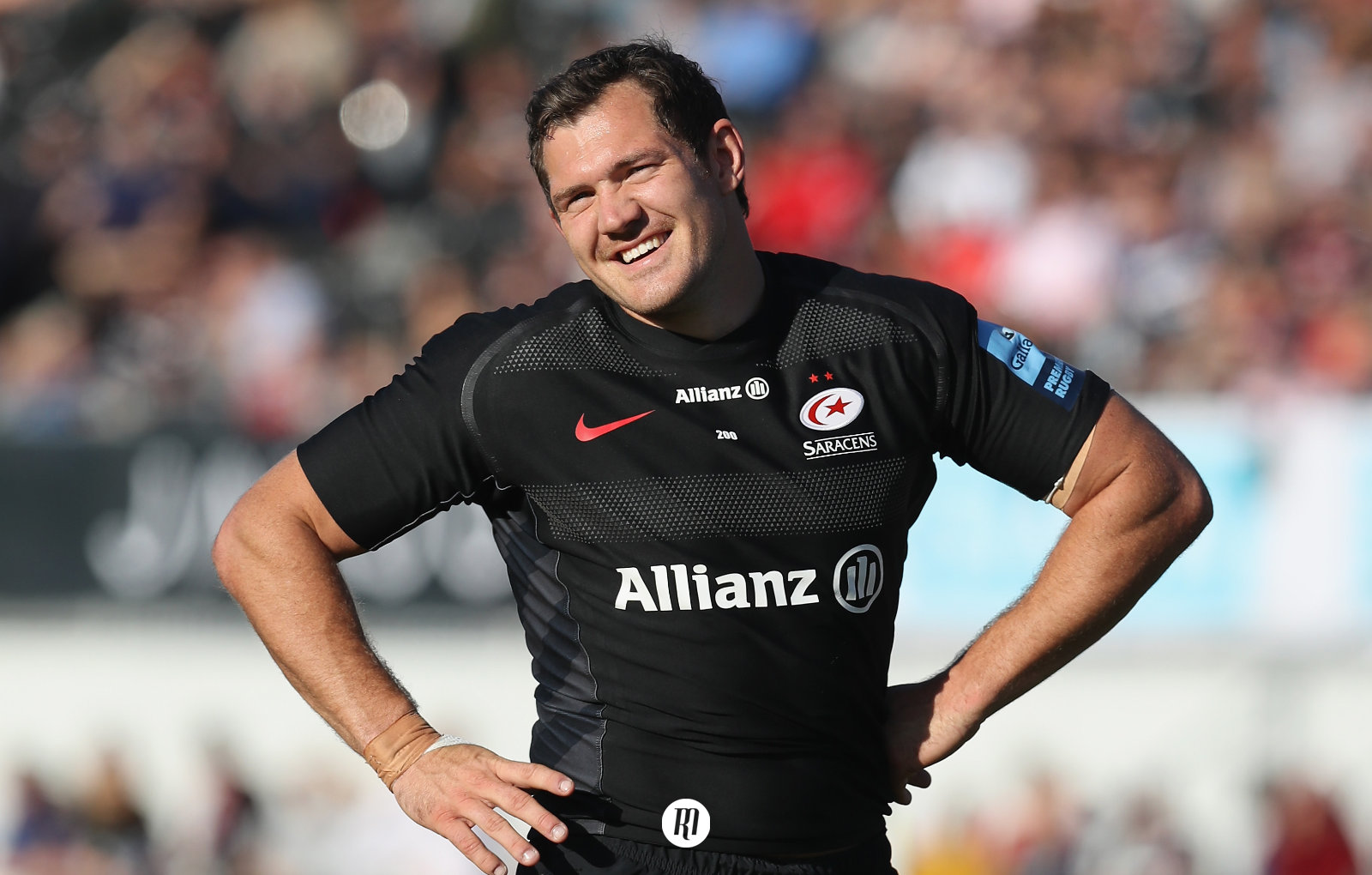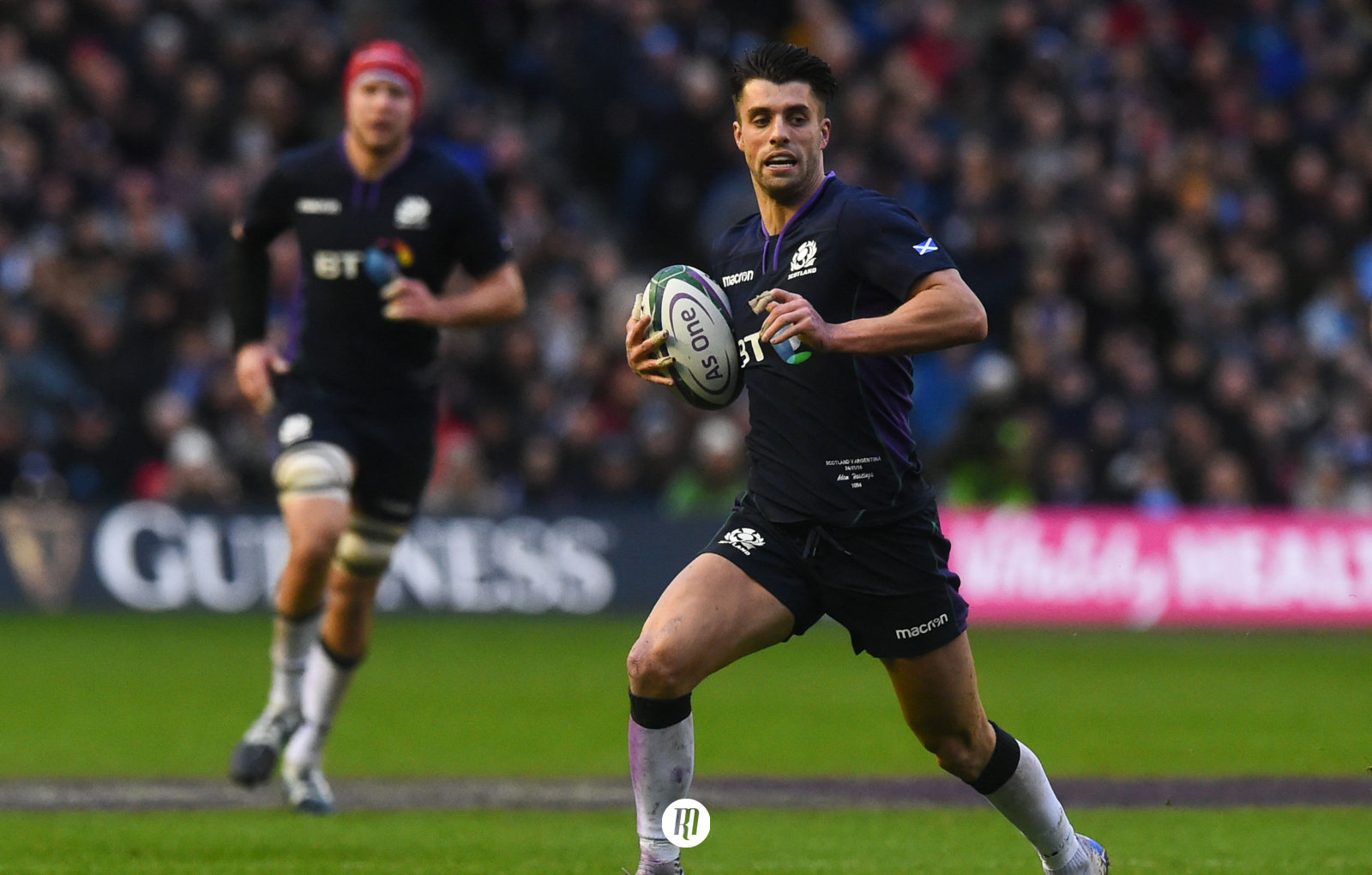Alex Goode: a Swiss Army Knife amongst an arsenal of broadswords
Snippet: Alex Goode has been repeatedly ignored by England since Australian boss Eddie Jones took over the reins; has the 30-year-old’s jack of all trades skillset hindered his Test career?
Criminal, preposterous, an outrage. Goode’s often-transcendent form for Saracens over the last three years has recurrently sparked the fans’ indignation. Ireful and perplexed supporters have oft questioned Eddie Jones’s decision to drop him from the regular England squad within the first year of his arrival.
Since the Australian took control, Goode has earned just one outing in Jones’s XV, taking a starting berth against Fiji in 2016. This singular start would see a 58-15 drubbing of the Fijians, with Goode contributing the first and only Test try of his career.
Stranger still is the fact that Goode played the full 80 minutes of one of England’s biggest results in the modern era, the 2012 Twickenham victory over the All Blacks; a result overshadowed by the 2003 World Cup alone. With a further 230+ appearances for Saracens, three Premiership trophies, back-to-back Championship Cup titles and a Premiership Player Of The Season award in 2016, the mind boggles when tasked with the challenge of reasoning Jones’s continued disinterest in the Cambridge-born playmaker.
The once widely accepted suggestion that Goode suffered from an erratic aptitude under the high ball has since been dispelled, leaving a rather frustrating explanation for his England exclusion. It would seem Goode’s quality was spread too wide across the board for Jones, struggling to offer the point of difference the former Japan boss values in his fullbacks. In Jones’s hunt for an arsenal of broadswords, Goode stood alone as a Swiss Army Knife.
It seems that prior to Eddie’s decision to tear up his preset plans at fullback and induct Wasps and Lions star Elliot Daly, he valued the physical, never-say-die ferociousness of Mike Brown or the almost supersonic, burning pace of Anthony Watson, Daly’s fellow British and Irish Lions wing.
While Goode was pulling the strings for Saracens - ironically filling the role Jones is now asking of Daly - and etching a grin on many a Premiership Fantasy Manager’s face, Jones was determined to employ a 15 with a hard-hitting point of difference, something he believed would stand to the test of international rugby. And if we are honest, there is some logic in that. Decision making and distributing can come under pressure at the highest level of rugby, while speed and strength – barring injury – will endure.
For the vast majority of Jones’s tenure, Goode simply didn’t fit the bill, and in all likeliness, would not have been able to do himself justice in the function asked of him. The role of a straight-line-running fullback suited the contact area expertise of Brown or pace of Watson, but not Goode’s silky smooth operations.
England enjoyed a level of unpredictable success in their first season under Jones, fuelling the fire of frustration left burning by the disastrous 2015 World Cup exit with their on-field endeavours serving as metaphorical lumps of coal. Include the presences of a pair of fully fit Vunipola brothers, an in-form Jonathan Joseph and the shiny new sensation that was Maro Itoje, and plenty of the cracks left hiding under the surface were well and truly papered over.
It would take until last month’s November Internationals, following a fifth-place finish in the Six Nations and near whitewash in South Africa, for Jones to admit and embrace the fact that his side were in desperate need of an added dimension; or five.
This eventual change would see the permanent appointment of attack coach Scott Wisemantel, the return of Owen Farrell to his rightful position at fly-half, Kyle Sinckler’s usurpation of ever-present tighthead Dan Cole, the formation of a backrow consisting of a full contingent of natural backrowers and the appointment of Daly as first-choice fullback. These belated alterations would occur two years after Goode’s last squad involvement.
Jones’s change of heart in his approach to attack that has seen Daly as good as sewn into the 15 jersey seems to have come too late in the World Cup cycle for Jones to consider Goode. With Daly still adjusting to fill a Goode/Swiss Army Knife-like role for England while question marks remain over the 13 jersey, for which Daly has so often professed his desire, makes Goode’s exclusion all the more vexing.
Although, for all the criticism of Jones’s stubbornness he has proven himself capable of change, and the lack of any real backup for Daly will remain as a nagging concern. Employing Daly in a second wave assault is a positive approach towards developing England’s attack, but it is also a dynamic a team can become dependent on; see Willie le Roux for the Springboks.
As it stands, Brown is the only man plainly left in Eddie’s thoughts and with Goode out of the picture, absolutely must travel to Japan next year if England wish to avoid an almost catastrophic gap in the backfield in a situation where Daly is unavailable.
Given Jones’s history of capricious selections, it would come as no surprise to me to see Goode involved in England’s Six Nations squad early next year, acting as both mentor and replacement for Daly.
Should Jones question whether Goode’s extended period away from the international scene would hamper his potential in the white jersey, he need only look at two of the squad’s latest success stories. Exeter Chiefs loosehead Ben Moon and Newcastle Falcons flanker Mark Wilson shot to fame over the November period, stepping up from the club scene to become some of the side’s most consistent, and arguably standout, performers.
It will leave Goode with little time to prepare, but the highly decorated fullback has amassed the highest level of experience within the upper echelons of club rugby possible. If any player could face the challenge of a return to the England fold less than a year from a World Cup, it’s him.

Filed under:
Gallagher Premiership, England, Saracens
Written by: Alistair Stokes
Follow: @alistokesrugby · @therugbymag






